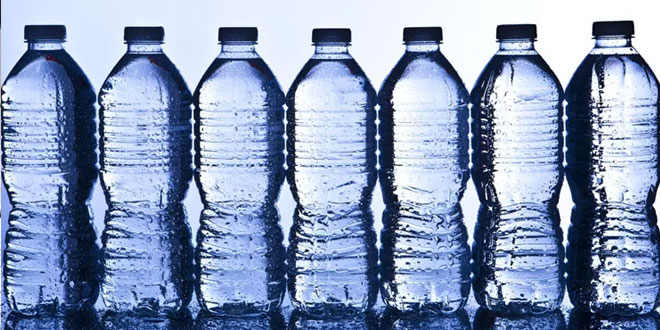
Check your plastic bottles, BPA is really bad for your sexual health
A recent study from the National Food Institute, Technical University of Denmark, has provided more evidence to suggest that exposure to bisphenol A (BPA), commonly found in plastic water bottles, can have a negative effect on health, even when exposed to low doses.
The endocrine-disrupting chemical, which is also found in certain can linings and thermal paper in receipts, has long been suspected of having negative health consequences.
Now The National Food Institute has carried out a large animal study to look further into the effects of the chemical, and believe their results are also significant for humans.
Researchers exposed a large group of rats to the chemical as fetuses and during lactation, exposing the group to low doses – the equivalent to what humans may be exposed to in daily life – as well as higher doses.
The rats’ growth, developing brain and reproductive system, including mammary gland development, was studied through to adulthood, with findings showing that even low doses of bisphenol A affected the development of both male and female rats.
In females, bisphenol A appeared to masculinise their brains, causing increased body weight in adulthood, and more ‘male’ behavior.
The male rats showed not only a decreased sperm count as adults, but also increased growth of mammary gland tissue, possibly indicating an early stage of breast cancer.
The same effects were not seen when the rats were exposed to higher doses. The result supports previous studies which have also found that although low doses of bisphenol A can affect animal development, including metabolism, the reproductive system, and the nervous system, higher doses have different effects.
The National Food Institute outlines that individuals exposed to a level no higher than 0.7 micrograms per kilogram of body weight per day should be sufficiently protected against bisophenol A’s endocrine-disrupting effects. However this level was set at a much higher 4 micrograms per kilogram body weight per day by the European Food Safety Authority, EFSA, back in February 2015, a level which the National Food Institute says is too high.
Ulla Hass of the National Food Institute noted that, “The health risks of bisphenol A are especially of concern for highly exposed consumers. This applies in particular to pregnant or nursing women and children, who are especially sensitive to the adverse effects of bisphenol A that may occur at low exposure levels.”
The results can be found online in two different studies published in Andrology.
There are steps you can take to lower your daily exposure to Bisphenol A.
If you don’t want to give up water bottles, look for one that is BPA-free, while many food manufacturers have now also changed their packaging to BPA-free versions, including Ace of Diamonds, Health Valley Organic, Earth’s Best Organic, Health Valley and Amy’s. Campbell Soup Company has also promised to be BPA-free in the US and Canada by 2017.
Other common culprits include baby bottles and sippy cups, with children particularly vulnerable to the chemical’s effects, so check with manufacturers for BPA-free versions.
Source: AFP Relaxnews

